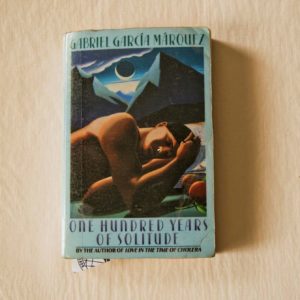At the beginning of the novel, when Angel first meets Tess at the May Dance, he leaves his brothers to dance with the girls whose partners, Hardy informs us, were still at work. Before he joins the dance, he is described to “gallantly” inquire about the girls’ partners. He dances with a girl whom Hardy does not bother to describe or give name to. He however, does not dance with Tess, and as he notices her when he is about to leave, “He too was sorry then that, owning to her backwardness he had not observed her.” This thought briefly occupies his mind and he is said to forget her immediately after it. But Tess notices him, and standing apart from her friends, follows his departing back with her eyes. This meeting is a good foreshadow for Tess and Angel’s future relationship.
When Angel meets Tess again at Talbothays Dairy farm, Tess is the one who remembers their first encounter. Just as he had enjoyed being the partner of a single girl in a group of dancing girls without other male partners, and all of them desired to have a turn with him; he steals the heart of Tess and three other girls at the Dairy. Mostly through his gallantry, or charm, as I prefer to call it. Since Tess seemed the best, he chooses her. Though his attention pleased Tess very much, and though she was very much in love with him, she at first resists his proposals of marriage because of her past with Alec. Eventually, her frail attempts are weakened by his persistence and she marries him. On the same day they exchange vows, Angel grows cold towards Tess after she reveals to him the secret of her past. Is the influence of society so strong that when a man who claims himself very much in love with a woman, hears of her rape on the first day of their marriage, he does not think of her but only of his ego and what others would think of him? Angel is very much repelled by what he has been told and he wished she would take it back and lie to him instead. When she would not, he separates from her and goes off to a different continent.
Angel, like Alec is also a product of his society. We are, however, encouraged to like the former and dislike the latter. From his earliest encounter with Tess, Alec’s interest in her is plain. If not in feeding her strawberries directly with his own hands and pinning every inch of her with flowers, then in
arranging for her to work for his mother, or in going to pick her up in his carriage after she agreed to come to work for them. We know what he wants, it seems everyone knows what he wants but Tess. What prompts me to find Alec’s actions towards Tess as forgivable as Angels’ desertion of her is Hardy’s description of Tess’ looks throughout the beginning of the novel. While she was eating Alec’s strawberries during her first visit to his home, about her, Hardy writes, “It was a luxuriance of aspect, a fulness of growth, which made her appear more of a woman than she really was. She had inherited the feature from her mother without the quality it denoted.” In other words Tess is not what she appears to Alec. Though she is said of being aware of this look she possesses, the reader, like Alec, only finds out exactly how much Tess knows of what her appearance attracted, after her rape. This is not to excuse Alec’s behavior, but to further explain my point that Alec is equally at fault as Angel. After her confession, Angel is surprised to learn that she is a fallen woman especially when everything about her says the opposite. According to Angel, she looks very much like the untainted woman, so how is it possible that she is otherwise. This is the same reasoning behind Alec’s rape, albeit from an opposite angle. Alec is encouraged by this appearance of hers which makes her seem “more woman than she is,” and hence established the assumption that she knew what game they were playing when she did not. Yes, Tess’ appearance is far too often to blame for her bad fortune.
How is it that Tess does not try to get Alec to marry her after he devalues her? Is this because she had no real knowledge of society and is hence free of its influence or it is solely because she did not love him and therefore did not want anything to do with him? (One can blame her extreme pride, too, I suppose) but I believe it is due to the latter. Alec is similar to Tess in this way. After she refuses his help, when he meets her again after Angel’s desertion, he wished to become a part of her life. He gets a license to marry her, and upon finding out that she is already married, he offers to help her and her family over and over again. This time Hardy proposes that Tess knows what he is after, and yet does she? It seems that Alec does love Tess and what is unfortunate is that Tess does not return his feelings.
Though it seems that the reason why Tess had to die was because there was no place in society for her, to my way of reasoning, Alec had to die when Angel came back because he would not have let Tess go willingly. Alec’s obsession with Tess, rivals hers with Angel. So that it seems it would be impossible for Alec to hand over Tess. And though Tess might have left him, on her own for Angel. I cannot imagine Alec selflessly leaving them be. Despite her love for him, Angel had proven what he always believed, which is that he did not deserve Tess. Perhaps Alec’s punishment for raping Tess is that he cannot have her, and Tess’ punishment for loving the wrong man is not being able to be with him either. Though society would have pardoned Alec, it would not have pardoned Tess. So Hardy had Tess kill Alec, and the law kill Tess. The irony is that it is not society that kills Tess, it is both Alec and Angel.
—
Jane A. Odartey



